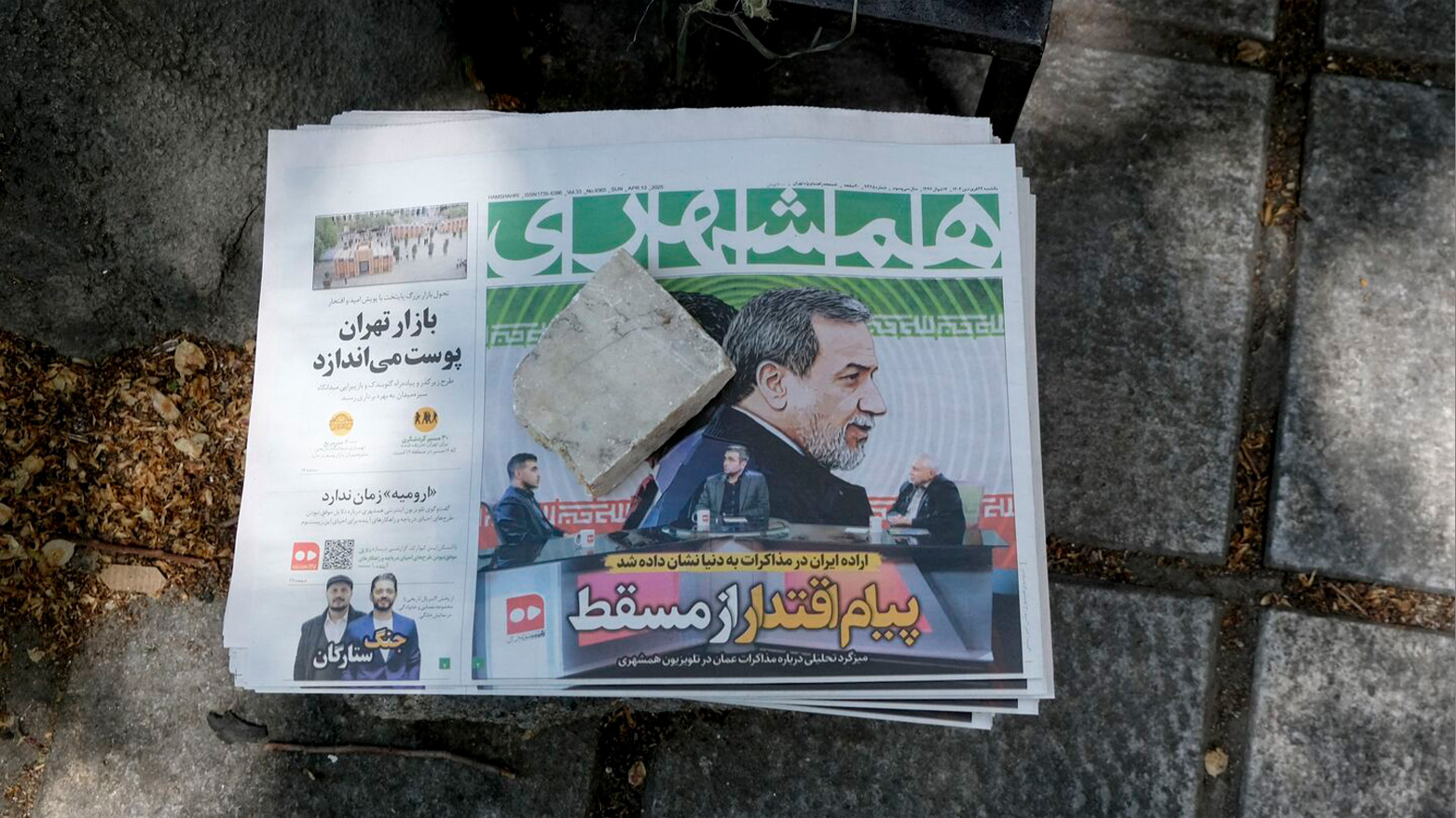‘Snapbacks’ or Sanctions Relief? U.S.–Iran Talks Resume in Rome
According to a report by AFP, U.S. Secretary of State Marco Rubio urged European countries on Friday to consider reinstating "snapback" sanctions on Iran, claiming Tehran's non-compliance with the existing nuclear agreement.

By Kamaran Aziz
ERBIL (Kurdistan24) – Iran and the United States are set to commence a crucial second round of indirect negotiations in Rome on Saturday, mediated by Oman, amid growing international concerns about mutual distrust, military escalation, and inconsistent diplomatic signals from Washington.
Iranian Foreign Minister Abbas Araghchi confirmed Thursday evening in Moscow that he would travel to Italy to resume discussions, clarifying that while Rome will serve as the venue, Oman remains the official mediator. "Rome is not hosting the talks; rather, it is merely the venue. The host of the indirect negotiations between Iran and the U.S. remains the Omani government," Araghchi explained, underscoring Oman's continued role in facilitating dialogue.
These negotiations follow intense diplomatic scrutiny, with international observers closely monitoring both sides for signs of progress or further escalation. According to a report by AFP, U.S. Secretary of State Marco Rubio urged European countries on Friday to consider reinstating "snapback" sanctions on Iran, claiming Tehran's non-compliance with the existing nuclear agreement.
Further highlighting the complexities surrounding the negotiations, Al-Monitor reported significant credibility issues facing the Trump administration ahead of the Rome discussions. U.S. special envoy Steve Witkoff recently made contradictory statements regarding Iran’s uranium enrichment capabilities, initially suggesting that Iran could retain limited enrichment rights, then reversing his stance within 24 hours. This flip-flop has deepened skepticism on the Iranian side, raising questions about the consistency and seriousness of the U.S. negotiation strategy.
Jonathan Panikoff, director of the Scowcroft Middle East Security Initiative at the Atlantic Council, warned that the mixed messages from Washington risk significantly undermining U.S. leverage at the negotiation table. Similarly, Iran has been clear that uranium enrichment, which it maintains is strictly for peaceful purposes, remains non-negotiable, insisting on clarity and consistency from the American side.
In a separate in-depth interview with France 24, Elliot Abrams, former U.S. special envoy for Iran, echoed concerns over the Trump administration’s approach. "There's a real danger here, which is that the Iranians perceive that Trump is too anxious and that his negotiator, Mr. Whitkoff, is too anxious for a deal," Abrams said. He warned that the talks risk becoming a return to the 2015 nuclear deal, with minor changes but no substantial limits on Iran’s missile development or support for regional proxies.
Abrams emphasized, "If the Iranians are not willing to give up that program, then I think it should be destroyed by the United States and/or Israel," suggesting that diplomacy must be backed by the credible threat of force. He also pointed to recent U.S. military movements, including aircraft carriers and B-2 bombers in the region, as preparation for potential escalation.
According to France 24, Abrams acknowledged President Trump’s reluctance for war, but stressed that domestic political pressures could force his hand. "If the alternative is a really rotten deal... what choice is he going to make? I don't think we know the answer to that yet."
Amid these diplomatic uncertainties, sources cited by Al-Monitor suggest that Iran might favor an interim deal similar to the Joint Plan of Action agreed upon in 2013. Such a deal could pause further uranium enrichment in exchange for relief from "maximum pressure" sanctions imposed by the Trump administration. According to Ali Vaez, director of the Iran Project at the International Crisis Group, a short-term agreement may appeal to President Trump, seeking a diplomatic "quick win," but it might also attract criticism for granting Iran economic reprieve without substantial concessions.
The current diplomatic phase carries high stakes, as Europe's ability to reimpose suspended UN sanctions on Iran will expire on October 18, increasing pressure for decisive diplomatic outcomes. The New York Times previously reported deep divisions within the U.S. administration on acceptable outcomes and potential military responses, highlighting President Trump's hesitation over approving an Israeli strike against Iran in favor of diplomatic solutions.
Araghchi’s remarks in Moscow followed his pivotal meeting with Russian President Vladimir Putin, where he delivered a message from Iran's Supreme Leader covering bilateral relations and regional developments. Araghchi described the Putin meeting as highly practical and operational, focusing on actionable diplomatic strategies rather than formalities. Russia and China, both influential powers with historical roles in Iranian nuclear negotiations, have expressed willingness to facilitate the ongoing diplomatic process.
The outcome of the Rome talks is expected to significantly influence future diplomatic dynamics between Iran and the international community, setting the stage for either sustained negotiation or heightened geopolitical tensions.
